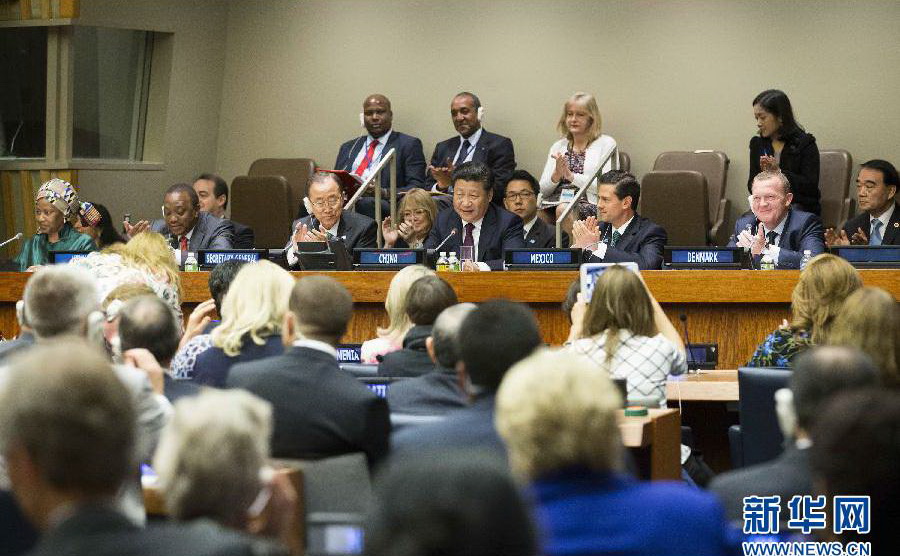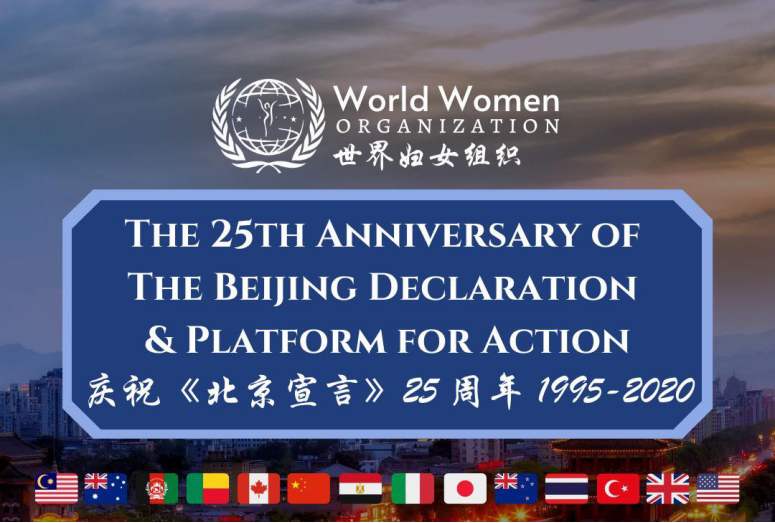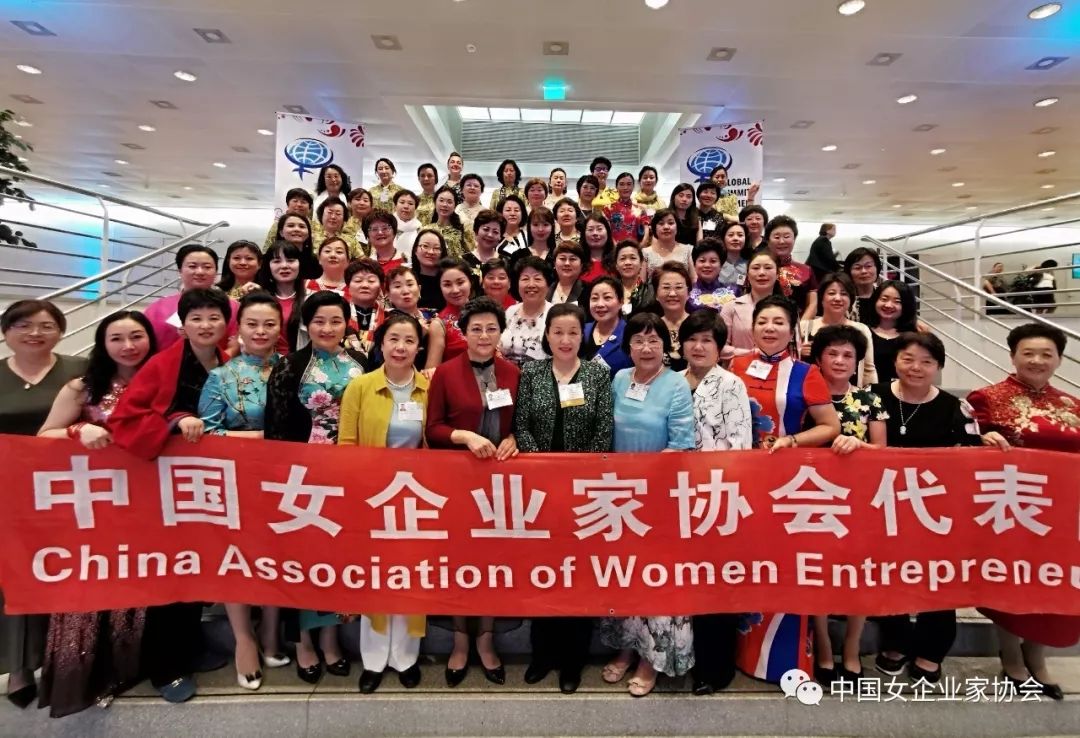
Chinese President Xi Jinping delivers a key address at the opening ceremony of the Global Leaders' Meeting on Gender Equality and Women's Empowerment at the United Nations headquarters in New York, on September 27, 2015.
Five years ago when the United Nations (UN) 2030 Agenda for Sustainable Development was adopted, China and UN Women co-hosted the Global Leaders’ Meeting on Gender Equality and Women’s Empowerment: A Commitment to Action at the UN Headquarters in New York.
Chinese President Xi Jinping presided over the meeting and delivered a speech titled Promoting Women's All-round Development and Building a Better World for All. The speech expounded upon the important role of women’s development and the promotion of gender equality in the progress of human civilization. President Xi pledged that China will strive for women’s development in tandem with social and economic progress, protect women’s rights and interests, make efforts to build a harmonious and inclusive society, and foster a global environment conducive to women’s development. By fulfilling the promises, China is leading the world in accelerating the advancement of gender equality and women's development.
Since the meeting, China has been carrying out the guiding principles of the Fourth World Conference on Women held in Beijing in September 1995, and implementing international documents and conventions, such as the 2030 Agenda for Sustainable Development. It accelerated the promotion of gender equality and women’s all-round development, created a new pattern of women’s development with Chinese characteristics, and made promising progress.
Women Empowerment
The Chinese Government is committed to women empowerment in tandem with social and economic development. It has formulated a policy system for the goal. The Communist Party of China (CPC) vowed to follow the fundamental national policy of gender equality and protect the legitimate rights and interests of women and minors in its report to the 19th National Congress of the CPC. It went further at the Fourth Plenary Session of its 19th CPC Central Committee in 2019 by pledging to build a policy system for safeguarding gender equality and promoting women’s all-round development. At the 12th National Women’s Congress held in 2018, Chinese President Xi Jinping and the new leadership of All-China Women’s Federation made arrangements for the development of the causes pertaining to women in the next five years. These policies and arrangements fully demonstrated the Party’s high attention to and strong leadership over the work in promoting gender equality and women’s empowerment.
The country’s 13th Five-Year Plan for the period from 2016 to 2020 dedicated one separate chapter on "Promoting Women’s All-round Development." During the period, the National Program for Women's Development (2011-2020) was further implemented. In 2019, the compilation of the program for women's development over the next period started. Fresh strategies and goals are expected to be released and substantiated in state-level special plans and local development plans.

Protecting Women's Rights
China is persistent in safeguarding women’s rights and interests, and eliminating all forms of violence against women, including domestic violence.
The system to protect women’s rights and interests has been incorporated into laws and regulations, elevated to the will of the state, and internalized into social norms. The actual differences between the two sexes and women’s special interests are taken into account when making laws, policies, plans, and arrangements. The promotion of gender equality and women's development is included in the overall strategy of governing the country in accordance with the law.
In the formulation or revision of laws, including the formulation of the Civil Code, the revision of Criminal Law, and the formulation and promulgation of the Anti-Domestic Violence Law, special attention was paid to women’s right to equal employment, land right, as well as their vulnerability to domestic violence, sexual assault or harassment.
Special plans for work on specific fronts substantiated the guiding principle of protecting women’s rights. The plans include the National Human Rights Action Plan (2016-2020) and the seventh five-year plan (2016-2020) for law promotion and education. Mechanisms for assessing gender equality policies and measures have been basically established. As of the end of 2018, 30 provincial-level regions across the country had established such a mechanism to ensure equality between men and women in the formulation, implementation, and supervision of laws and policies.
Building Harmonious and Inclusive Environment
China strives to build a harmonious and inclusive social environment, eliminate all forms of discrimination and prejudice against women, and enhance people’s awareness of gender equality. Efforts toward the goal include the following aspects.
The first is to improve government officials’ awareness of gender equality. Party schools and academies of governance at and above the county level offer courses on the basic national policy of gender equality.
The government has granted greater support to research projects on gender equality and encourages institutes of higher learning to scale up inputs in women-related disciplines. Gender equality has been integrated into the country’s basic education. Such courses are now available in primary and middle schools in 15 provincial-level regions.
The second is to change people’s biased views on women, particularly in rural areas. In 2018, seven central departments including the Ministry of Civil Affairs, the Organization Department of the CPC Central Committee, and the All-China Women's Federation jointly issued guidelines on formulating and revising code of conducts pertaining to gender equality in rural areas and urban residential communities.
The third is to leverage the media to promote gender equality.

A delegation of Chinese women entrepreneurs participate in the 2019 Global Summit of Women in Switzerland.
Women’s increasing important role in global issues
Upholding the concept of peaceful development and win-win cooperation, China highlights global agenda on women and children, and supports women's organizations from all over the world to strengthen exchanges, build friendship, and fight for common development.
As a member of the UN Commission on the Status of Women and the host country of the Fourth World Conference on Women, China has been actively implementing the Beijing Declaration and Platform for Action, which was adopted at the 1995 conference, as well as the 2030 Agenda for Sustainable Development, among other international instruments.
China attaches great importance to the role of women in diplomacy and safeguarding world peace. As of October 2018, the number of female Chinese diplomats had increased from 1,695 in 2015 to 2,065. In the past 30 years, nearly 1,000 female peacekeepers have been dispatched to global peacekeeping operations.
China has been supporting international exchanges and cooperation in women's health, education, economy, poverty reduction, the environment, and other fields. Since the 2015 UN meeting, the country has helped developing countries implement 100 "Happy Campus Projects" and 133 "Maternal and Child Health Projects," and invited more than 30,000 women from developing countries to China for training. Emergency humanitarian operations were launched in the fight against COVID-19. On behalf of the Chinese Government, President Xi Jinping’s wife, Professor Peng Liyuan, donated anti-epidemic supplies to women and children in 53 African countries through the Organization of African First Ladies for Development. On August 5, 2020, at the UN Women’s video conference "Response to Recovery: Experiences from China and Global Partners," China’s experience in fighting the epidemic and promoting women’s development was highly praised by representatives of various countries.
Rising Social Status
Women in China are getting increasingly active in political life. The proportions of women deputies to the 13th National People's Congress and female members of the 13th National Committee of the Chinese People's Political Consultative Conference were 24.9 percent and 20.4 percent, respectively, 1.5 and 2.6 percentage points higher than in the previous term. A growing number of women have become leaders in politics, business, and academia. A leading light in career life, many female workers, scientists and teachers are highly recognized in society, and some even won national honorary titles.
The health of Chinese women has also improved significantly. In 2018, 99.9 percent women gave birth in hospitals where they can get quality medical attention. Gender discrimination in education has long been a history in China. In 2017, the net enrollment rate for school-age girls in the compulsory education stage registered 99.9 percent, and more than half of those admitted in higher education were girls. Preferential support has also been offered to women and girls of ethnic groups and those facing physically challenges.
With a poverty reduction campaign targeting rural women, the All-China Women's Federation has helped more than 3.6 million individuals increase their incomes. China has reduced its poverty-stricken population from 98.99 million in 2012 to 16.6 million. Of the total number of people lifted out of poverty, about half were women.
This September marked the 5th anniversary of the Global Leaders’ Meeting on Gender Equality and Women’s Empowerment: A Commitment to Action, the 75th anniversary of the founding of the United Nations, and the 25th anniversary of the Fourth World Conference on Women held in Beijing. At the special moment, it is necessary to review the past and look into the future, particularly challenges facing women empowerment in a post-pandemic era. China has been championing the global endeavor of women empowerment, and it recently reiterated the stance in a position paper on the 75th anniversary of the founding of the United Nations issued early September. In the document, China called on the international community to further the implementation of the Beijing Declaration and Program for Action, and highlight the protection of women and girls’ rights and interests in COVID-19 response. This is a clarion call for global action.
Du Jie is the director of Women's Studies Institute of China, the All-China Women's Federation.